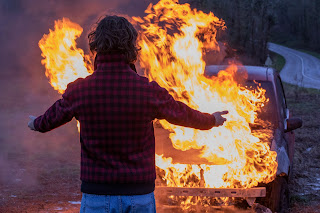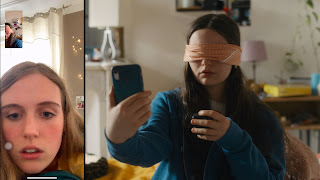In the 20 years since Christophe Honoré directed his first feature film (Seventeen Times Cécile Cassard), he's proved himself to be both prolific and remarkably consistent; perhaps the only real misfire in Honoré's filmography to date is 2004's My Mother, an unrelentingly grim Georges Bataille adaptation that could quite easily have derailed its director's then-incipient career. Yet, for all its faults, My Mother starred the incomparable and ever-watchable Isabelle Huppert, and since that film Honoré has proceeded to work with a clutch of other high-ranking members of French acting royalty, including Marie-France Pisier (Inside Paris), Catherine Deneuve (Beloved), Carole Bouquet (On a Magical Night) and, for his latest film, Juliette Binoche. Both Binoche and the superb Irène Jacob—a French icon Honoré is yet to work with—starred in Krzysztof Kieślowski's Three Colours trilogy, and in Winter Boy Binoche's on-screen son is played by Jacob's real-life son Paul Kircher.
In Winter Boy, Kircher's Lucas is edging his way through his final year of school and can't wait to leave his sleepy Alpine home town for the big city. Yet the sudden death of Lucas' father (Honoré himself) throws the family—rounded out by Binoche's Isabelle and eldest son Quentin (Vincent Lacoste)—into grief and disarray. As it happens, Lucas does make it to the city, and somewhat sooner than expected, as artist Quentin already lives there and agrees to put his brother up for a short while. Upon his arrival at Quentin's flat, Lucas becomes a source of irritation for his busy older brother and takes to wandering the streets; his time spent doing this serves a dual purpose, as it allows Lucas to explore the city while keeping out of Quentin's way. Lucas becomes acquainted with several of the people in his brother's life, and he forms a particular bond with Quentin's flatmate Lilio (the excellent Erwan Kepoa Falé), a sensitive would-be artist who serves as something of a surrogate brother to Lucas, who tends to clash with Quentin on the rare occasions that their paths cross.
While this metropolitan drama is playing out, there's an elephant in the room in the form of Isabelle, who has been left alone to deal with her newfound widowhood. Isabelle takes a back seat for much of the narrative, and mainly exists as a source of support for her two children—particularly Lucas—as they navigate the choppy waters of loss and grief. Yet when Honoré turns his gaze to Isabelle, the sense of bereavement is almost palpable, with Binoche delivering an immaculate turn as a woman who has ultimately failed to distract herself with the needs of others. It would be far too easy for Binoche to dominate the proceedings, especially opposite a newcomer like Kircher, but instead she calibrates her performance perfectly; Honoré, like the rest of us, is seemingly acutely aware of just how difficult it is to hide La Binoche in a film, and here he effectively harnesses his star's considerable skills.
Much will be made of Binoche and Kircher's fine performances, but it is also worth noting Vincent Lacoste's impressive work in Winter Boy; sandwiched between two more eye-catching turns, Lacoste invests his character with real depth, and his performance here underlines why he appears to be the current go-to actor for Christophe Honoré—even if he's only halfway towards notching up the number of Honoré-directed performances that both Chiara Mastroianni and Louis Garrel have on their respective CVs. As for Honoré's own filmography, Winter Boy may well stand as his most poignant work thus far; while many of his previous films—such as Love Songs, Sorry Angel and Beloved—contain more than a touch of pathos, Honoré's new film is directly informed by the death of his own father, and as such contains moments that are almost unbearably moving. This is top-tier Honoré, and one of 2022's cinematic highlights.
Darren Arnold
Images: BFI
















